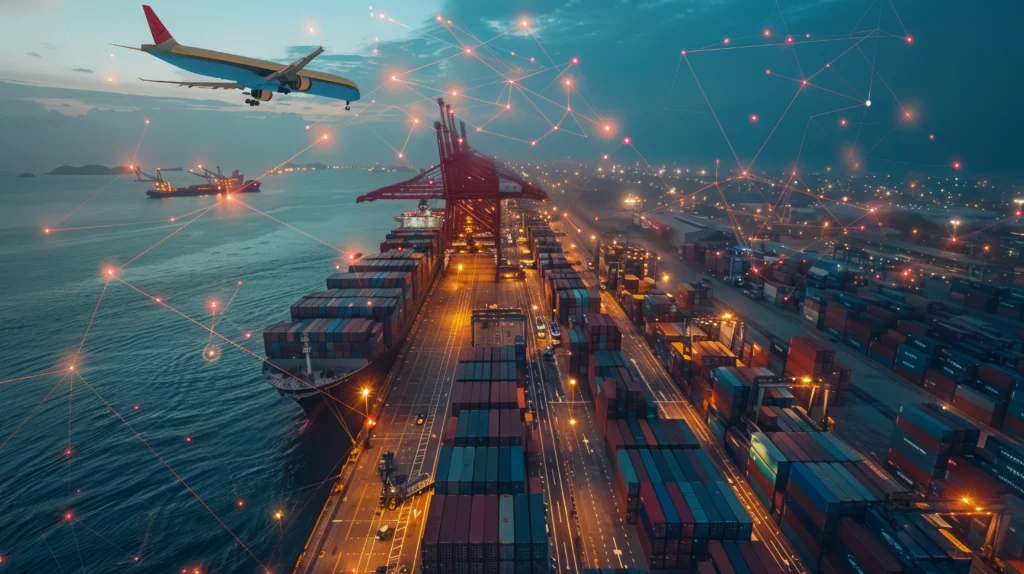In today's interconnected world, international logistics are the backbone of global commerce. It's more than just shipping goods across borders; it's ensuring that products reach their destinations on time, in optimal condition, and at the lowest possible cost. Effective international logistics management is crucial for businesses looking to expand their reach, optimise their supply chain, and build strong relationships with customers.
This guide offers valuable tips to help you navigate the complexities of international logistics and ensure your global operations run smoothly. Whether you're a seasoned exporter or just starting to explore international markets, these insights will prove invaluable.

Have you ever wondered how your local market restocks from an international supply chain? This is all the work of an intricate flow that focuses on transporting goods and services. International logistics is the mastermind that works complex networks of activities comprising transportation, warehouse, customs clearance, documentation, and much more across international borders.
Let’s focus on key components of international logistics:
Global logistics management plays a pivotal role in international trade by ensuring that goods are delivered efficiently, cost-effectively, and on time. It helps businesses mitigate risks, optimise their supply chains, and maintain customer satisfaction. However, the complexity of international shipping solutions can be daunting, as it involves coordinating logistics across different countries, cultures, and regulatory environments.
International laws regarding international logistics can be hard to comprehend sometimes, and most often than not, you can miss out on minute details that are paramount, costing your business penalties, delays, and irreversible losses. Customs requirements, trade agreements, and laws concerning imports and exports differ greatly from nation to nation; being attentive is a must.
To stay updated with the latest customs requirements and international trade laws:
Nothing enters a country without due diligence from the local customs offices. Clearing through the green channel is critical for your business to have a healthy relationship overseas. Customs officers will inspect goods, verify documentation, and assess duties and taxes pertaining to the industry, and this is how you can make your customs clearance process smooth.
It can be difficult to predict all the issues that could potentially pop up, but you can definitely ensure that you have covered all your bases.
How you intend to escort your inventory across borders is heavily dependent on the type of items being transported.
Selecting the most efficient and cost-effective shipping solution depends on factors such as the nature of the goods, delivery time requirements, and budget constraints.
For an efficient flow of goods across international borders, you need a very effective global supply chain. Coordinating various activities, such as sourcing materials, delivery of inventory, and being able to share the finished product with your client base, is all part of your supply chain management.
By optimising your supply chain, you can reduce costs, improve customer satisfaction, and enhance your business's overall competitiveness.
Understand your market, plan carefully, and manage your connections well so you have a grasp on your international trade regulations. Global operations allow your business to thrive internationally. To achieve this, you need to optimise your supply chain and minimise risks as much as possible.
This blog outlines ways that you can best sort your operations, how to choose the right mode of transportation, and how optimising all of these complicated processes can benefit your business.
Remember, successful international logistics is not just about shipping goods across borders; it's about building a resilient and efficient supply chain that supports your business growth. By investing in proper planning and management, you can position your company for long-term success in the global marketplace.
Stay tuned to our blog section for the latest advancements shaping the future of logistics!